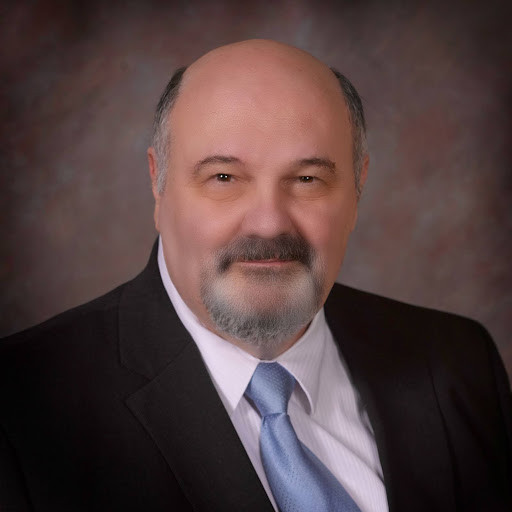Ted Davis Empowers Leaders by Enhancing Their Communication and Trust Skills

Halford E. Luccock, a Methodist Minister, once said, "No one can whistle a symphony. It takes a whole orchestra to play it." The same notion applies to teams. Although each member has distinctive skills and produces outstanding results individually, it doesn't guarantee the team's success. Teams must, therefore, work cohesively, in other words, they must have mutual respect.
American author Patrick Lencioni presents the Five Behaviors® model, a roadmap for creating highly cohesive teams. Inspired by The Five Dysfunctions of a Team, it emphasizes five behaviors of a cohesive team—Trust, Conflict, Commitment, Accountability, and Results—enabling the team to operate with maximum efficiency and effectiveness.
Team members must feel safe enough to reveal their weaknesses and express their opinions without fear of ridicule. This trust is the foundation for constructive conflict, which is an open and honest dialogue about differing perspectives. Team members can fully commit even if it wasn't their preference when there's trust and ideas are voiced through healthy conflict. Having committed to a shared action plan, they can then hold each other responsible for delivering on their commitments, allowing them to focus on results.
Ted Davis, DSL, the founder of Grace Strategic Services, Inc. (GSSI), a consultancy firm that enhances leadership performance and organizational success, draws from Lencioni's insights. He champions a leadership philosophy that revolves around the idea that communicating effectively and instilling trust are one and the same skill set.
Davis believes that trust forms the foundation of effective communication. In turn, effective communication is essential to building trust. "When team members trust each other, they make themselves vulnerable to the other's intentions. Such vulnerability reduces defensiveness and welcomes collaboration. The problem of not having trust is that communication becomes clouded by doubt. The messages are usually misinterpreted," he supplies.
He states that effective communication is the process of encoding, exchanging, and decoding information to create shared meaning, even when opinions differ. The level of trust influences how messages are received. Leaders must, therefore, demonstrate trustworthiness. After all, their words carry weight. When they communicate effectively, they effortlessly strengthen trust.
Davis argues that leaders must create an environment where trust is implicit, even in times of disagreement. Team members are more likely to understand and accept each other's perspectives if they believe others have good intentions. This would then lead to more productive dialogue and communication. "Trust and communication are two sides of the same coin," Davis states, highlighting their interconnectedness in pursuing leadership excellence.
Another major influence on Davis' unique approach to leadership is Credibility: How Leaders Gain and Lose It, Why People Demand It by James M. Kouzes and Barry Z. Posner. The book tackles how credibility is the foundation of effective leadership. The authors state that leaders earn credibility by demonstrating competence, consistency, and integrity.
Davis emphasizes that those in positions of power must consistently demonstrate their values and principles through their actions. If they remain consistent in their team-focused behavior and combine it with open communication, leaders can gain the trust of their team—a crucial aspect for long-term success. "Credibility isn't just a matter of perception. Think of it as a leader's currency, which is acquired over time through intentional behavior," Davis remarks.
Davis also draws inspiration from Stephen M. R. Covey's The SPEED of Trust: The One Thing That Changes Everything. In this book, Covey highlights how trust accelerates business processes and reduces costs. This notion stems from the fact that organizations that operate with high levels of trust are more efficient.
The author identifies four credibility attributes that Davis incorporates into his leadership philosophy: Integrity, Intention, Capability, and Results. Essentially, leaders must be honest, demonstrate strong moral principles, and act with clear, positive intent while showing care and concern for others. They must also have the skills and knowledge to perform tasks and deliver outcomes that meet expectations.
Davis stresses that character, knowledge, and competence are three critical elements in leading the team toward success. As someone with a military background, Davis simplifies leadership as "be, know, and do." "A leader's character drives their motives. Those motives are reflected in their words and actions. This cycle of 1. Motives shape words and actions, 2. Words and actions Create trusting relationships, 3. Trusting relationships drive team success," he expounds.
Ted Davis stresses that trust and communication are the foundation of effective leadership. Through GSSI, he intends to continue helping leaders create environments where teams thrive and achieve results. Davis developed programs like the Define leadership, Assess competencies, Design challenging experiences and education, Support the development process (DADS) Leadership Development Process to fulfill this goal, equipping senior and mid-level leaders with the right mindset to overcome challenges and capitalize on opportunities.
© Copyright IBTimes 2025. All rights reserved.





















